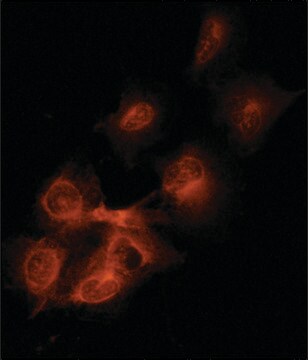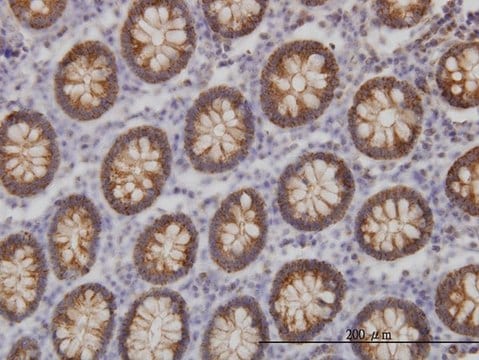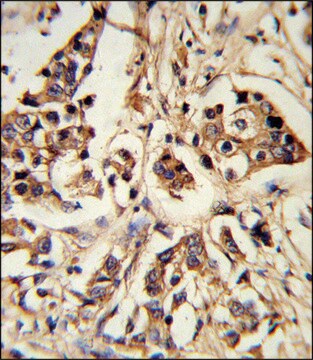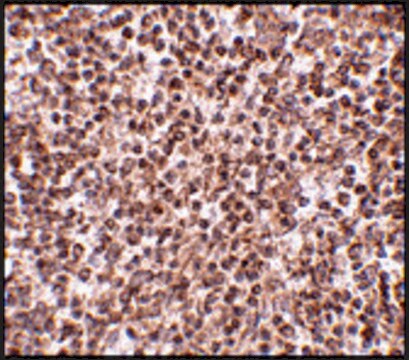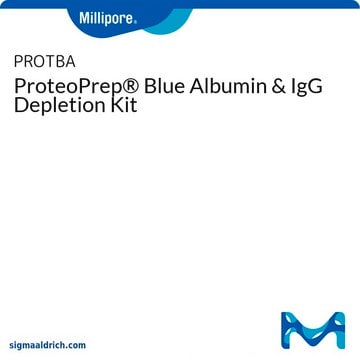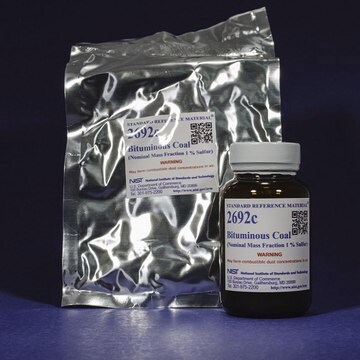SAB2501392
Anti-EPS8 (C-terminal) antibody produced in goat
affinity isolated antibody, buffered aqueous solution
Synonym(s):
Epidermal growth factor receptor pathway substrate 8
About This Item
Recommended Products
biological source
goat
conjugate
unconjugated
antibody form
affinity isolated antibody
antibody product type
primary antibodies
clone
polyclonal
form
buffered aqueous solution
species reactivity
mouse, canine, human, rat
technique(s)
immunohistochemistry: suitable
indirect ELISA: suitable
UniProt accession no.
shipped in
dry ice
storage temp.
−20°C
target post-translational modification
unmodified
Gene Information
human ... EPS8(2059)
General description
Immunogen
Biochem/physiol Actions
Features and Benefits
Physical form
Not finding the right product?
Try our Product Selector Tool.
Storage Class Code
10 - Combustible liquids
WGK
WGK 2
Flash Point(F)
Not applicable
Flash Point(C)
Not applicable
Certificates of Analysis (COA)
Search for Certificates of Analysis (COA) by entering the products Lot/Batch Number. Lot and Batch Numbers can be found on a product’s label following the words ‘Lot’ or ‘Batch’.
Already Own This Product?
Find documentation for the products that you have recently purchased in the Document Library.
Our team of scientists has experience in all areas of research including Life Science, Material Science, Chemical Synthesis, Chromatography, Analytical and many others.
Contact Technical Service